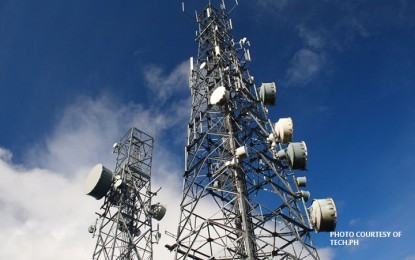
MANILA – At least 11 measures granting 25-year congressional franchise to the National Council of Churches in the Philippines (NCCP) and 10 other firms have lapsed into law.
Former President Rodrigo Duterte allowed the measures to lapse on June 2 without his signature.
Republic Acts (RAs) 11833 and 11834 give Prime Broadcasting Network Inc. and NCCP, respectively, a franchise to construct, install, establish, operate, and maintain radio and television broadcasting stations in the country for 25 years.
RA 11839, on the other hand, grants GVM Radio/TV Corp. 25 years to construct, install, establish, operate, and maintain radio broadcasting stations in Cebu City and other areas in the country.
The laws require the grantee to secure from the National Telecommunications Commission (NTC) the appropriate permits and licenses for the construction and operation of their stations or facilities.
The NTC, on the other hand, must not “unreasonably” withhold or delay the granting of permits and licenses.
The laws give the NTC the authority to revoke or suspend, after due process, the permits or licenses of the grantee violating the provisions of the franchise.
The NTC may also recommend to Congress the revocation of the franchise.
The franchise will be deemed ipso facto (by the fact itself) revoked in the event the grantees fail to operate continuously for two years.
The laws mandate the broadcasting companies to provide free and adequate public service time which is reasonable and sufficient to enable the government, through the broadcasting stations or facilities, to reach the pertinent populations on important public issues and relay important public announcements and warnings concerning public emergencies and calamities, as necessity, urgency, or law may require.
Public service time shall be equivalent to a maximum aggregate of 10 percent of paid commercials or advertisements which shall be allocated based on the need of the executive and legislative branches, the judiciary, Constitutional commissions, and international humanitarian organizations.
Under the law, the Philippine president is given the “special right” to temporarily take over and operate the grantees’ stations or facilities, “in times of war, rebellion, public peril, calamity, emergency, disaster, or disturbance of peace and order.”
The Philippine president can also wield his authority to suspend the operation of any station “in the interest of public safety, security, and public welfare.”
The grantees are prohibited from selling, leasing, transferring, granting, or assigning the franchise to any person, firm, company, corporation, or other commercial or legal entity.
They are likewise mandated to submit an annual report on their compliance with the terms and conditions of the franchise and its operations to Congress.
The annual report must include an update on the rollout, development, operation, or expansion of their business; audited financial statements; latest General Information Sheet officially submitted to the Securities and Exchange Commission (SEC), if applicable; certification of the NTC on the status of its permits and operations; and an update on the dispersal of ownership and undertaking, if applicable.
The reportorial compliance certificate issued by Congress will be required before any application for a permit or certificate is accepted by the NTC.
Telecommunications services
Duterte also inked RAs 11829, 11832, 11835, 11837, and 11838 authorizing Ismo Inc., South Cotabato Communications Corp., Aspire Media Technologies and Ventures Inc., Linkserve Telecommunications Network, Inc., and Purple Flower Telecommunication Corp. to construct, install, establish, operate, and maintain telecommunications services for 25 years.
RAs 11830, 11831, and 11836 were also signed, renewing the 25-year legislative franchise of Lukban Telephone System Inc., Continental Telecommunications System Inc., and General Telephone System Inc.
The laws allow grantees to operate wired and wireless telecommunications systems for commercial purposes and in the public interest.
Grantees are required to conform to the ethics of honest enterprise and not use its stations or facilities for obscene and indecent transmission, or dissemination of deliberately false information, willful misrepresentation, or assist in subversive or treasonable acts.
They are also directed to improve and extend its services in areas not yet served, and in hazard- and typhoon-prone areas that shall be determined by the National Disaster Risk Reduction and Management Council, or its legal successor, in coordination with the NTC.
The charges and rates for telecommunications services of the Iriga Telephone Company Inc., except the rates and charges on those that may be declared or considered as non-regulated services, whether flat rates or measured rates or variations, will be subject to the NTC’s approval.
A copy of the laws was released on Friday. (PNA)
